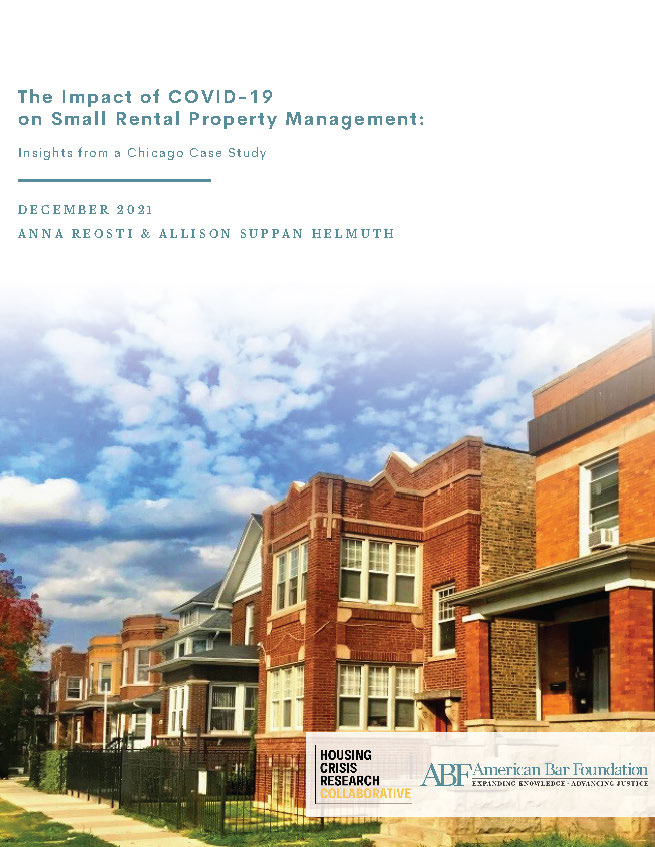The Impact of COVID-19 on Small Rental Property Management
In this report, authors Anna Reosti and Allison Suppan Helmuth describe the experiences of small-building landlords in Chicago and how they have responded to challenges posed by the COVID-19 pandemic. The authors focus on this group because independently owned, small rental properties (SRPs) make up an outsized share of the nation’s supply of unsubsidized affordable housing in the private market, which is often referred to as “naturally occurring affordable housing.” Non-professional owners of SRPs also tend to employ distinct approaches to rental property management that can create favorable terms for tenants. However, the COVID-19 pandemic poses multiple threats to the viability of this sector of the rental market. In addition to potentially hastening the ongoing depletion of small-scale rental housing by triggering a wave of selloffs and foreclosures among financially distressed property owners, the pandemic may also drive shifts toward more rigid styles of property management among small-building landlords seeking to recoup COVID-related losses and insulate themselves from future financial risks.
This study draws on in-depth interviews with 69 small-scale landlords in the Chicago area – the majority of whom are owner-occupants and whose units rent, on average, for below-market rates. The authors find that the majority of landlords in this study continued to use flexible and accommodating approaches to property management during the pandemic. However, a sizeable minority (approximately one-fifth) of landlords whom they interviewed described taking up or planning to adopt more rigid and risk-averse management practices in response to the financial challenges of the pandemic, such as raising rents, fees, and implementing more exhaustive and restrictive tenant screening criteria. Such shifts have the potential to undermine the relative affordability and accessibility of housing in the small-building rental sector.
Understanding how SRP owners are responding to financial uncertainty during COVID-19 is imperative for housing policymakers and researchers who want to stabilize SRP landlords and tenants in the wake of the current pandemic and ahead of future rental market crises. The authors’ findings illuminate the circumstances that may drive SRP landlords to adopt more rigid management practices in response to the pandemic, and more fundamentally, the fragile foundations on which the flexible and accommodating business models of some SRP landlords rest. They conclude with a discussion of the policy interventions that could prevent or discourage landlords in this sector from transforming their rent-setting and management practices in ways that pass the risks of market crises on to tenants.

